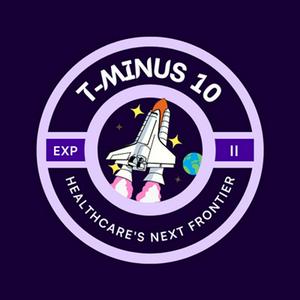#38: Using AI, Data, and Telepharmacy To Drive Medication Optimization with Jason Rose, CEO of AdhereHealth
Episode 38: Using AI, Data, and Telepharmacy To Drive Medication Optimization with Jason Rose, CEO of AdhereHealthWhat you’ll get out of this episodeJoin host Tim Fitzpatrick as he chats with Jason Rose, CEO of AdhereHealth. In this voyage we learn more about AdhereHealth’s mission to deliver data-driven technology that improves medication optimization and quality measures to achieve value-based outcomes. We also hear how Jason’s 30 years of experience in this space shaped the company’s rebrand and transformation since he took over its helm in 2018. Today, AdhereHealth is the market leader using telepharmacy to overcome social determinants of health (SDOH) and improve the patient experience.Disclaimer: In this video Jason incorrectly states Dr. John Halamka left Beth Israel and is now at Johns Hopkins but he is actually at Mayo Clinic.In this episode you’ll discover:How AdhereHealth delivers purpose-built, innovative technology solutions to improve the quality of care, medication adherence , and cost outcomes.Why AdhereHealth is still the only national telepharmacy solution operating at scale in the United States today, touching more than 30 million people through its technologies and at-risk engagement services.How their unique combination of analytics, clinical workflow software, and proactive telepharmacy outreach addresses an estimated half a trillion dollars of unnecessary annual medical costs attributed to medication adherence issues.Why AdhereHealth developed the first-of-its-kind PRM (patient relationship management) software to further their understanding of patients’ Social Determinants of Health (SDoH).How Jason and his team think about things like risk and data architecture for their PRM platform by leveraging claims data (mile wide), medical history (mile deep), and pharmacy records (updated daily).Final Frontier - 5 Questions in 50 SecondsTop Challenge: Leveraging a combination of technology and clinician enablement that actually accelerates outcomes (hint - not an EHR)Top Opportunity: Medication adherenceTech Trend You’re Following: Public-Private PartnershipsTop Media Recs: Breaking the Habit of Being Yourself: How to Lose Your Mind and Create a New One by Dispenza, Joe. Modern Healthcare, Fierce Healthcare, Rama on Healthcare, WSJRockefeller, George LukasHealthcare / Tech Leader(s) You’re Following:Elon MuskDr. John Halamka, CIO at Mayo ClinicDr. David Brailer, First US Health IT Czar, Bush AdministrationSarah London, CEO of Centene CorporationDan Mendelson, CEO of Morgan HealthDavid Cordani, CEO of CignaGail Boudreaux, CEO of ElevanceQuotables“The pandemic was a…wasted opportunity to tackle [medication adherence] in a really big way. Who were those most hurt in the pandemic? It was not about the genetic code, it was about the zip code. It was the same patients before we still see today who are not getting their drugs for the chronic conditions.”“We’re using the data of yesterday to inform our decisions today, and artificial intelligence to drive our actions tomorrow.”Recommended ResourcesMedication Adherence Is a “Force Multiplier” for Medicare Advantage Profitability, Enrollment, Star Ratings (AJMC, 2023)The Quintuple Aim for Health Care Improvement: A New Imperative to Advance Health Equity - PubMed (nih.gov)Cost of Prescription Drug-Related Morbidity and Mortality - PubMed (nih.gov)Charting a New Path to At-Home Medication Adherence With Digital Pharmacy Support (AJMC, 2022)Join the Conversation Are you a healthcare innovator? Tell us what topics and people you’d like us to cover in future episodes:Jason Rose on LinkedInAdhereHealth on LinkedInAdhereHealth on Twitter““It’s a long-standing belief that star ratings are Darwinism in healthcare. If you don’t get the four stars, you’ve lost a percentage of your premium and lost funding to put into the product, and now because you’ve lost that, you’ve also lost membership enrollment,” says Rose. “And because you’ve lost the ability to compete with your peers, it’s going to take two years to come back with a higher star rating.” Great article Patient Safety & Quality Healthcare and Matt Phillion!#healthcare #sdoh #pharmacy #quality #starratings#medicationadherence” @Jason Rose on LinkedInAbout Your HostTim Fitzpatrick is the CEO of IKONA Health, a company using neurobiology and immersive technology to improve how patients learn about their care and treatment options. Tim co-founded IKONA based on his own patient experiences while serving in the US Navy and now in the VA health system. He has served as Principal Investigator on multiple federal research grants, has co-authored papers on learning science, VR, and mental health in the age of COVID-19, and has partnered with top healthcare investors and institutions including the National Science Foundation, Department of Defense, National Artificial Intelligence Institute, StartUp Health, On Deck, FundRx, MATTER and NVIDIA.


